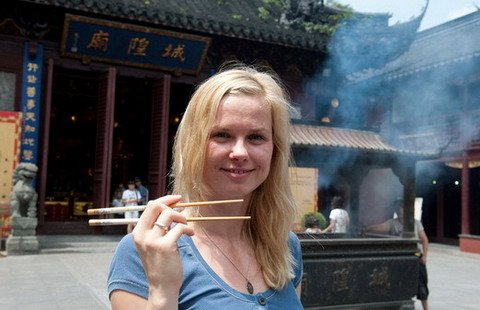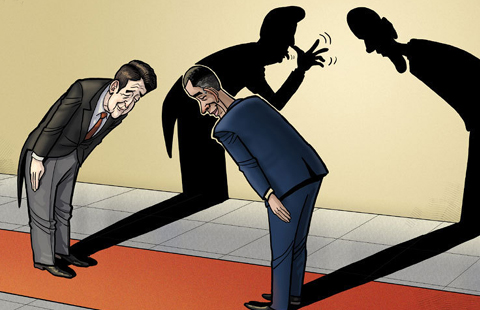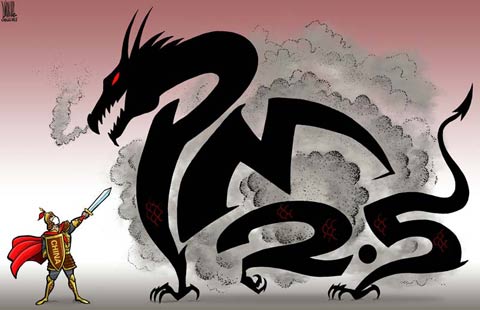Taking sides is against interests of Australia
By Wang Hui (China Daily) Updated: 2015-01-14 08:08
Such a tendency has prompted the thinking that Australia and Japan are now just one step short of forging a military alliance. Australia has also responded enthusiastically to the US rebalancing to Asia strategy, and it is perceived by the US as an important part of its strategic chessboard.
But Canberra should bear in mind that the deeper the Australia-US-Japan trilateral alliance goes, the less room it will have to maneuver should there be a conflict, such as one between China and Japan over the Diaoyu Islands.
In this regard, it seems respondents to the survey have greater awareness than their government of the potential risks of siding with the US and Japan over the maritime disputes.
Indeed, when asked if there were a conflict between China and Japan, and Australia supported Japan in conjunction with the US, do you think the value of Australia's trade with China would fall, 78 percent of the respondents said "yes".
The survey results are in conformity with the growing voice in Australian society that the country should not deepen its relations with the US and Japan at the expense of its ties with China.
Indeed, the entirety of China-Australia interaction, the robust trade ties in particular, means any move to harm, instead of further boosting, the current flourishing picture would incur a heavy cost. To Australia that obviously wants the benefit from its alliance with the US and Japan as well as from its ties with China, the balancing act needs to be handled with care.
The author is a senior writer with China Daily.
wanghui@chinadaily.com.cn











